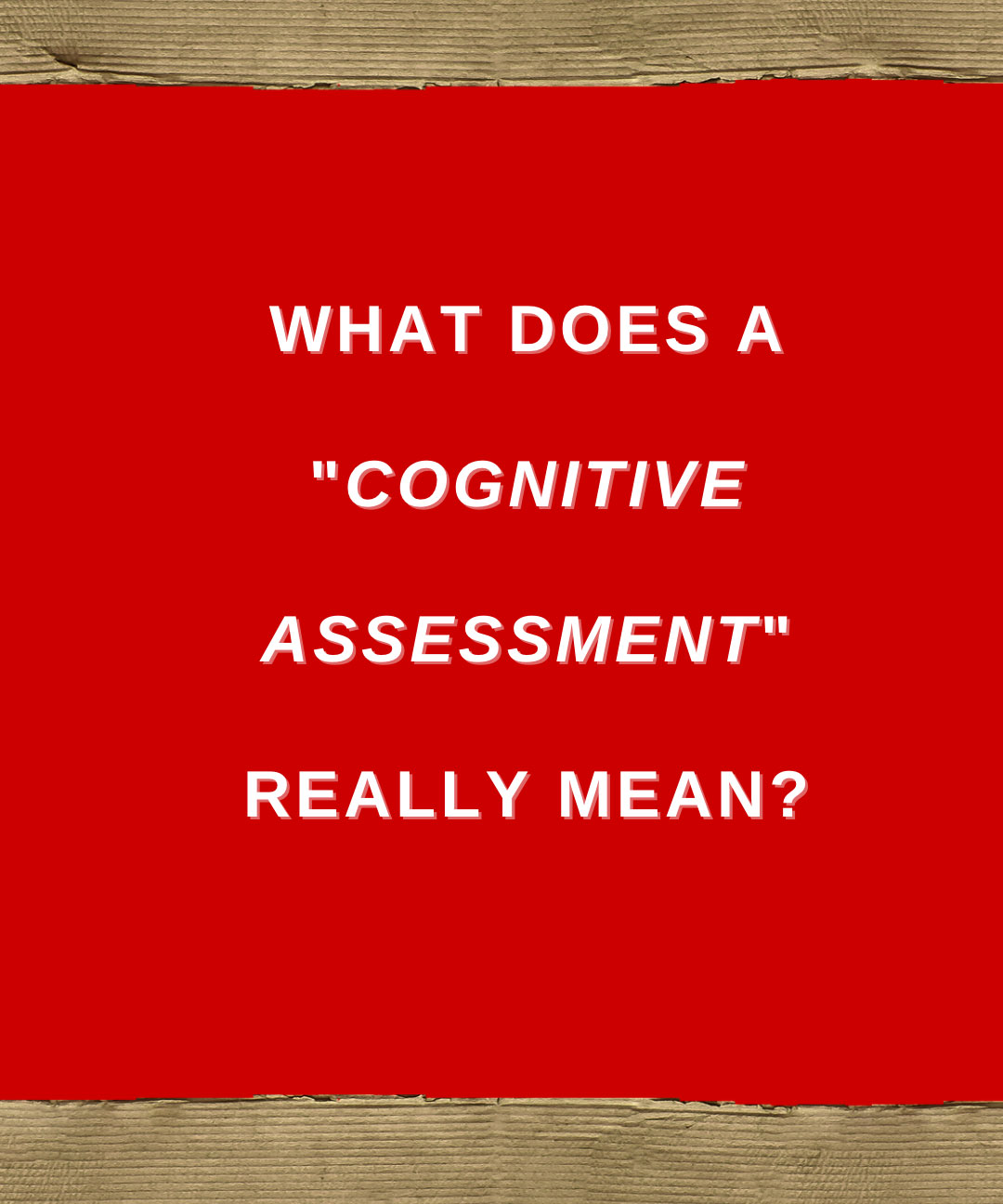Understanding Cognitive Assessments and Their Usefulness
Parents may ask themselves why cognitive assessments are necessary or even useful. The short answer is that such assessments provide a detailed profile of a child’s learning needs and potential. Cognitive assessments have many benefits, including the ability to identify a child’s strengths and weaknesses in learning, for determining the existence of a learning disability, or for identifying giftedness. Combined, the knowledge acquired is beneficial to student performance because assessment findings can be used to individually target instruction in a manner that optimizes a child’s potential and offers support in areas where weaknesses may be present.
With this in mind, readers may then ask themselves, “What precisely does a cognitive assessments measure?” Historically, the focus of cognitive assessments had been mainly on the overall cognitive ability of an individual (e.g., General Intellectual Ability [GIA] or Full Scale Intelligence Quotient [FSIQ]). However, as more research has been collected, we now know that better information can be obtained by looking at the cognitive constructs that make up a person’s overall cognitive ability. In general, cognitive assessments measure a person’s ability in seven core areas through the use of various types of tests. To provide readers a better understanding of what a cognitive assessment is and what it does, we will examine each area in turn.

Fluid Reasoning
First, a cognitive assessment will measure Fluid Reasoning. Fluid Reasoning is a person’s ability to solve unfamiliar problems using the knowledge they already possess. Individuals that have weak fluid reasoning capacity may have difficulty recalling information or experience problems with learning or retrieving previously learned knowledge. Naturally, such issues can undermine academic performance. Cognitive assessments usually measure this capacity using nonverbal tests that require inductive reasoning and spatial visualization. Most of these tests require the use of abstract rules and patterns.
Comprehension Knowledge
Second, cognitive assessments measure Comprehension Knowledge. Comprehension Knowledge is a person’s existing knowledge, their ability to communicate that knowledge and to put this knowledge to use. A person with poor comprehension knowledge usually lacks necessary information or may experience difficulty communicating what they know. Naturally, such weaknesses have a broad impact on learning and academic performance. Comprehension Knowledge is broadly measured in cognitive assessments through tests of oral vocabulary, general information, and oral comprehension.
Short-Term Working Memory
Third, cognitive assessments measure Short-Term Working Memory. Short-Term Memory is the ability to receive and retain new information and then use it within a short period of time. An example of short-term memory is the ability to remember a phone number long enough to dial it. Indicators of weakness in this area include difficulty in remembering instructions or information just presented. These individuals may likewise be easily overwhelmed by complex tasks. Such limitations have clear implications in the classroom.
Long-Term Retrieval
Fourth, cognitive assessments measure Long-Term Retrieval. Long-term Retrieval is the ability to store information in long-term memory and to retrieve it at a later period. Indicators of long-term retrieval problems include trouble recalling information learned in the past, difficulty organizing ideas, finding the right words, or clearly communicating thoughts. Such limitations have broad implications on learning, from hindering performance on tests to accessing or linking information, such as mathematical formulas, learned earlier. Long-Term Retrieval is often measured in cognitive assessments through tests that require story recall or rapid picture naming.
Cognitive Processing Speed
Fifth, Cognitive Processing Speed is measured on cognitive assessments. Processing Speed is the ability to automatically perform cognitive tasks, especially where concentration needs to be maintained under pressure. Indicators of weak cognitive processing speed include slow performance on easy tasks or a need for extra time to respond to a question. Students with slow processing speeds may need accommodations such as extra time to complete tasks or shorter assignments. Processing speed is often measured on cognitive assessments through tests such as a letter- or number-pattern matching.
Auditory Processing
Sixth, cognitive assessments measure Auditory Processing. Auditory Processing is the ability to analyze, synthesize, and differentiate auditory stimuli, which includes distinguishing and understanding spoken words. Weaknesses in this ability often present among individuals with reading difficulties. Indicators of challenges in this area include poor phonological awareness, difficulty recognizing sounds, or misunderstanding complex oral instructions. The academic implications of poor auditory processing can impact student performance in both reading and listening comprehension.
Visual Processing
Finally, cognitive assessments measure Visual Processing. Visual Processing is the ability to observe and work with patterns. Indicators of weak visual processing include poor orientation; misperception of objects in a given space, and problems remembering material that has been presented visually presented material. The implications can be as subtle as a child easily losing their place on a page when reading or having a hard time copying text or taking notes in class. This capacity is often measured in cognitive assessments through tests of visualization or picture identification.
Cognitive assessments use a variety of tests that measure important capacities. The data obtained from these assessments can be used for more than the identification of a learning disability. In fact, the data gleaned from an assessment provides a comprehensive snapshot of a child’s cognitive ability and offers valuable insight into where the child excels and where and why they may struggle.
Our initial consultations are free of charge, we can help you determine your assessment needs and help guide your decision.
Thank-you,
Dr. Tammy
